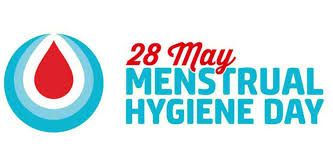As Nigeria joins the global community to commemorate World Menstrual Hygiene Day, the Federal Government has emphasized the need for stakeholders’ collaboration to achieve a period-friendly society.
The Minister of Women Affairs, Imaan Sulaiman-Ibrahim, made this known in her address to commemorate the World Menstrual Hygiene Day in Abuja.
The government acknowledged that menstrual hygiene remains a significant challenge in Nigeria, particularly among adolescent girls and women in vulnerable communities.
To address this issue, it calls for a multi-stakeholder approach, involving government agencies, civil society organisations, and international partners.
“Let me be clear, menstrual health is not just a women’s issue. It is a public health concern, a matter of human rights, and a national development imperative. The challenges faced by millions of Nigerian girls and women, including limited access to affordable menstrual products, inadequate WASH facilities, and persistent stigma are barriers that demand a united and urgent response.
“The Federal Ministry of Women Affairs cannot walk this path alone. Achieving a period-friendly Nigeria requires whole-of-government and whole-of-society collaboration; involving MDAs, CSOs, development partners, and the private sector. It requires commitment to ensuring that every school, every workplace, and every community has the infrastructure and awareness needed to support menstrual dignity”
The Minister also informed that Federal Ministry of Women Affairs is mandated to safeguard the rights and dignity of women and girls, is proud to stand at the forefront of this movement. This Day is more than an annual event; it is a clarion call to action. It offers us the opportunity to raise awareness, challenge taboos, educate communities, and advocate for policy and infrastructure that support menstrual health and hygiene management (MHHM).
“This is why the Federal Ministry of Women Affairs has elevated and will continue to champion menstrual health and the fight against period poverty to a national priority.”
She stressed that Corps members, with their reach into classrooms, clinics, and communities, have a vital role to play in normalising conversations around menstruation, driving advocacy, and promoting positive behavioral change.
















